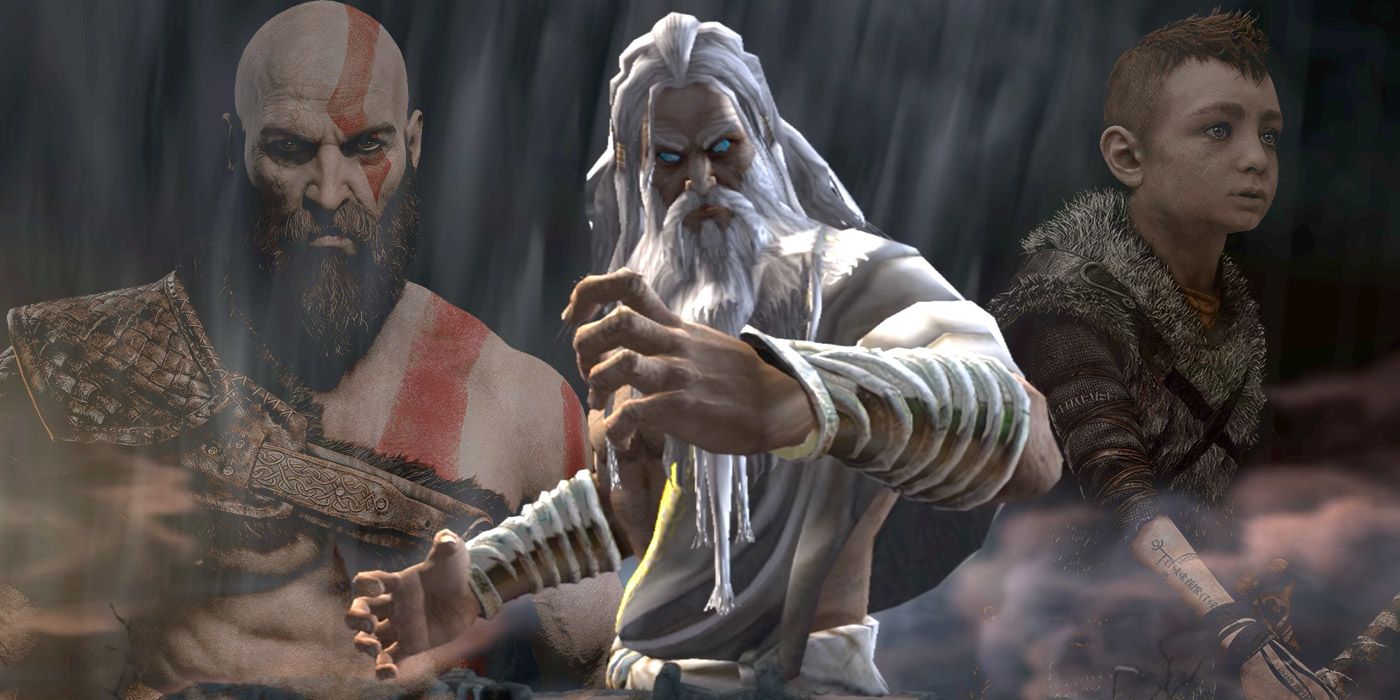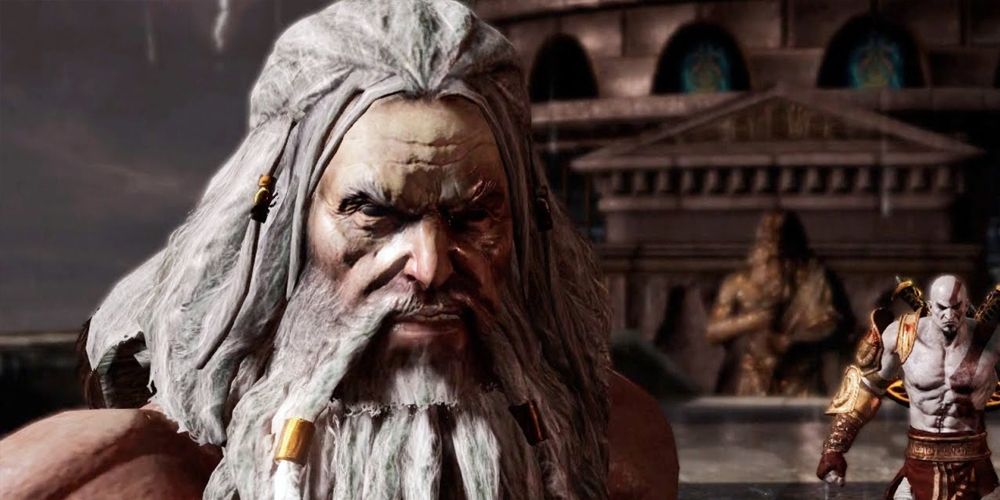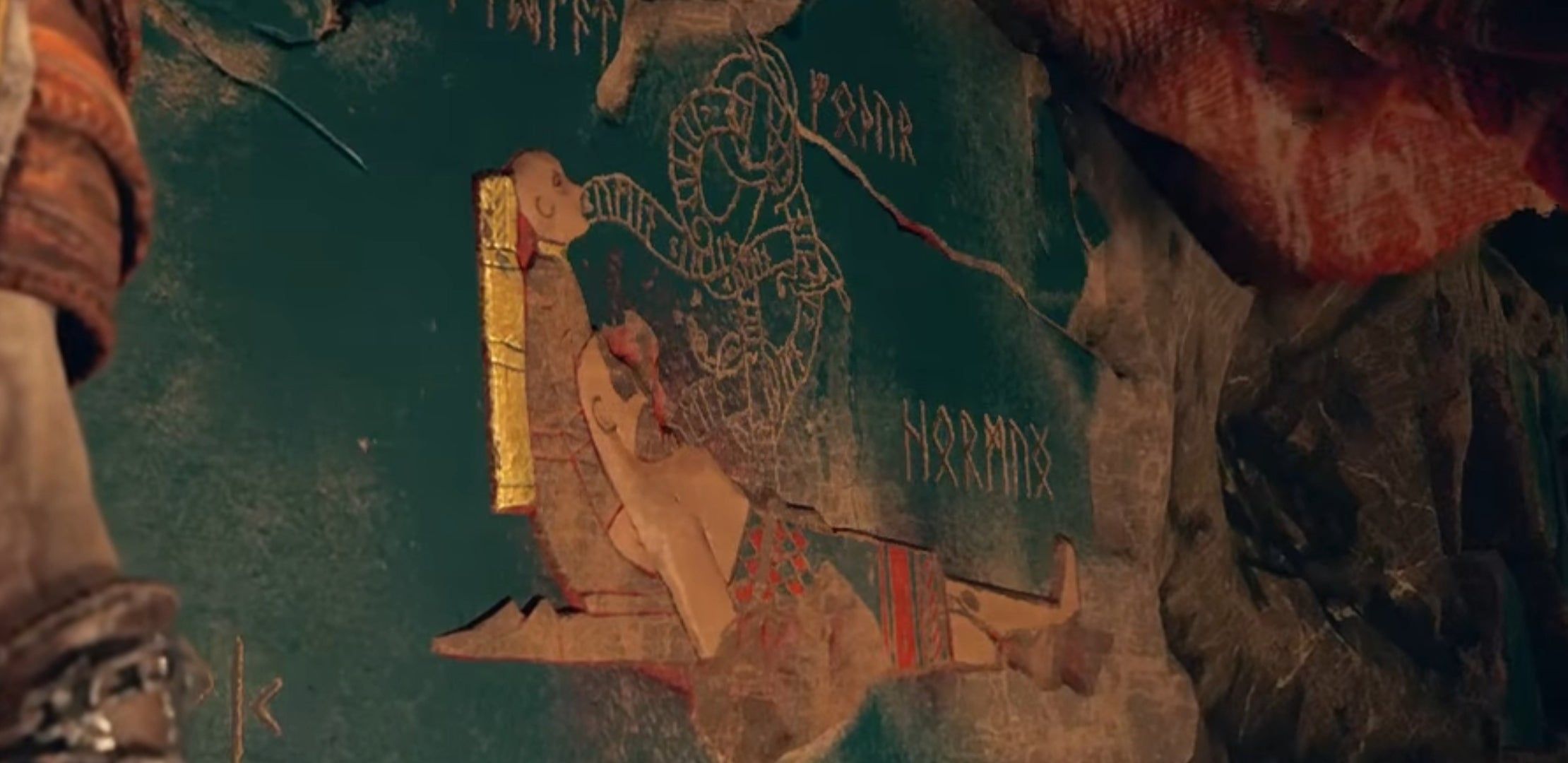The sequel to God of War will deal with the Ragnarok prophecy in a unique combination of Norse mythology and the story of the games so far. The game will also very likely deal with a theme that has run through every installment of the series since the second game, which has also featured heavily in the backstory of the franchise.
The next God of War will have to confront the cycle of patricide which has run through the series. Sons killing their fathers, and the seeming inevitability of such events and the fears they inspire, will likely come to a head in the next game, where players will likely see Kratos deal with the possibility of his own death at the hands of his son.
Cronos and Zeus
The origins of the cycle of patricide in God of War have their roots in Greek mythology and events which take place even before the very first game in the God of War franchise, released for PS2 back in 2005. Zeus, the patriarch of the Greek gods, became the leader of the Helenic pantheon after betraying his father, Cronos. The Titan had already feared that he would be a victim of his own children, and had been eating them after their births to avoid such a fate until Zeus’s mother tricked him into eating a rock instead of the next newborn. Even before that, Chronos had overthrown his own father, Uranus, prior to having his own children.
The anxiety surrounding sons killing fathers already exists in the mythology before the first major act of patricide takes place. Zeus would then go on to have a demigod child with a woman in Sparta, and that child would grow up to be the Ghost of Sparta. Kratos killed the main villain Ares in the first God of War game after the original Greek god of war forced him to kill his family.
In God of War 2, Zeus betrayed Kratos and eventually killing him. Like Cronos, he did this out of fear that Kratos would eventually become powerful enough to overthrow him, having been infected by paranoia released by Kratos from Pandora’s Box. Kratos is rescued before he fully descends to the Underworld and is given a chance to go back in time and take revenge on his father. This finally takes place in God of War 3, where Kratos kills Zeus.
The Death of Kratos
The cycle, however, continues. In the 2018 God of War, Kratos has a son of his own: Atreus. Towards the end of the game, Atreus is revealed to have another name given to him by his mother: Loki. The Jotunheim Mural in God of War shows the unfolding of Ragnarok to Kratos and Atreus, including their pasts. After Atreus leaves, Kratos discovers a final panel to the mural.
The mural shows Atreus cradling what appears to be the corpse of Kratos, with the Norse runes for “father” and “betrayal” or “deceit” surrounding them. There are a few ways this could be interpreted. It could be that Atreus, AKA Loki, continues the cycle of patricide by killing his father, Kratos. It could also be that Atreus kills another mythological father figure to Loki, Odin, thus realizing the death of the gods prophesized in Ragnarok.
The figure Atreus is holding in the mural resembles Kratos is many ways, but lacks the trademark tattoos and also has a blotch on his face which could imply a missing eye. Kratos got his tattoos when he killed his first family, so it could imply his redemption in death. If the body isn't Kratos, the runes may refer to Loki as the god of deceit and Odin as the All-father. The new God of War will very likely deal with Kratos’ attempts to break the cycle of patricide, not for his own sake, but to stop the same fate befalling Atreus. Whether he succeeds, however, remains to be seen.
A God of War sequel releases in 2021.



